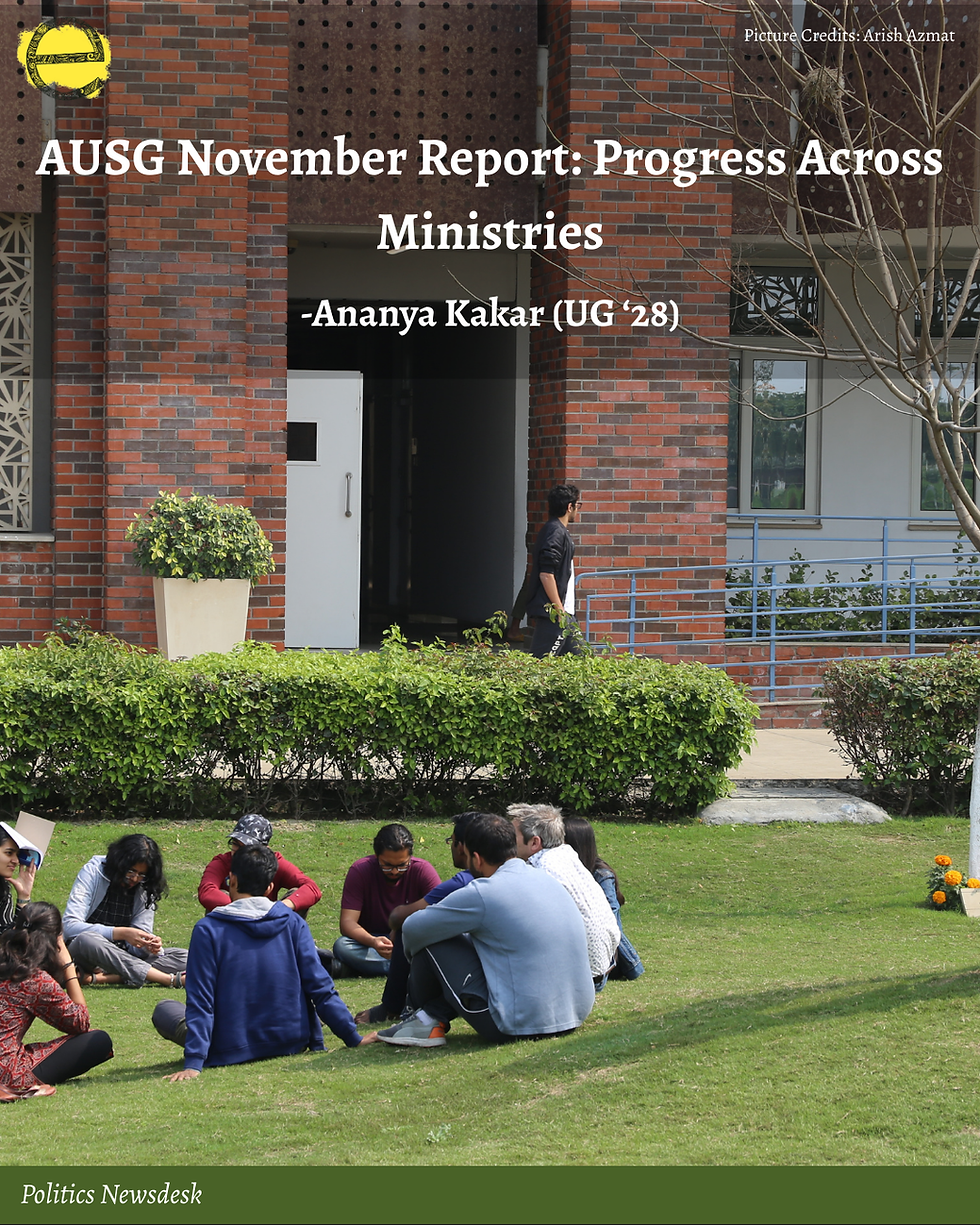Referendums and Elections: Charting a Realistic Path
- The Edict
- Jul 21, 2021
- 3 min read
By Aggam Walia (UG’22)
Since March last year, we have attended three online semesters, experienced the tragic consequences of the second wave, and dealt with the frustrating ordeals of confinement. Campus politics hasn’t been forgiving either– an online election, a boycott of classes, numerous resignations, yet another round of SH allegations and the dissolution of the House. It would be an understatement to say that Ashokans are tired. Now, there is an expectation of conducting a referendum on the electoral system and of holding fresh elections, both in the coming few weeks. In trying to overcome the political crisis at hand, we must follow an agenda that recognises the brute reality of our exhaustion.
Given the circumstances, the interim SG and the AUEC must devise a plan that prioritises the tasks before it. Perhaps, it is of utmost importance for the student body to have a fully functional House of Representatives that is reflective of the general mandate. We already know that it will be a cumbersome task to encourage students to stand for fresh elections and ensure good voter turnout. To interject a referendum on the electoral system before elections would make things worse. Firstly, the Ashokan body is not in a position to debate the merits and demerits of the proposed electoral systems. This is a process that needs high levels of engagement. Imagine a probable situation where we choose a system without much deliberation, a system that fails us in the future. Secondly, we will undoubtedly exhaust all our energies in organising a referendum and see poor participation when it is time for elections. Thirdly, perhaps it is wiser to trust an HoR that is representative of our mandate to oversee the process of choosing and implementing a new electoral system. This can only happen once fresh elections have been conducted. Finally, this plan would save a lot of precious time that can be spent in discussing structural reforms as it allows us to conduct elections at the earliest possible time.
Having a referendum after elections means that we will surely re-encounter all the problems with Swiss-PR in the coming election season and it might be frustrating for some. However, that is a compromise we will need to make if we want to truly fix our political system. Introducing significant changes during chaos will only deepen the crisis. We must create some semblance of stability and pursue change from there.
Alternatively, if students feel that the need for structural reforms outweighs the need to elect a new HoR, we could still chart a course that is sensitive to the current circumstances. It would be ideal in such a situation to pursue the referendum and other discussed reforms only with the explicit understanding that the interim SG would carry on till fresh elections are held in February. In the most ideal scenario, the proposed elections would be held at least two months from now. The AUEC is yet to choose the new Chief Election Commissioner. Once that is done, a lot of time will be spent in figuring out the logistics of holding elections, and in deciding and implementing new reforms. A considerable amount of time, at least two weeks, will be allocated for campaigning. Then, the newly elected House will only have about 4 months until it is dissolved again. Do we really need so much paraphernalia when the process can be simplified by having the interim SG carry on till February? The former will give us sufficient time and stability to carry out much-needed reforms, which can be applicable for the elections in February and onwards.
The way things are going, we could have two elections and a referendum by the end of February. It is unwise to expect Ashokans to adequately engage with all this in a short period of time. The above proposals stem from this reality. We could perhaps come up with more alternatives, but essentially they all must strive to make the process easier and less triesome for Ashokans. The only way to ensure that we are going in the right direction is to choose a path that prioritizes what we need and works towards efficiently achieving it.
Note: Ayush Bahl was announced to be the new CEO of the AUEC on 22nd July, 2021.







Comments